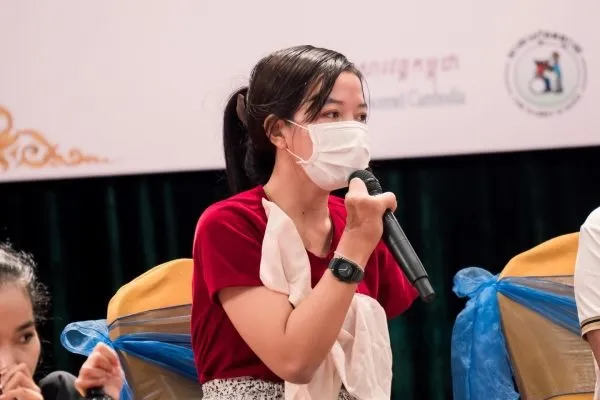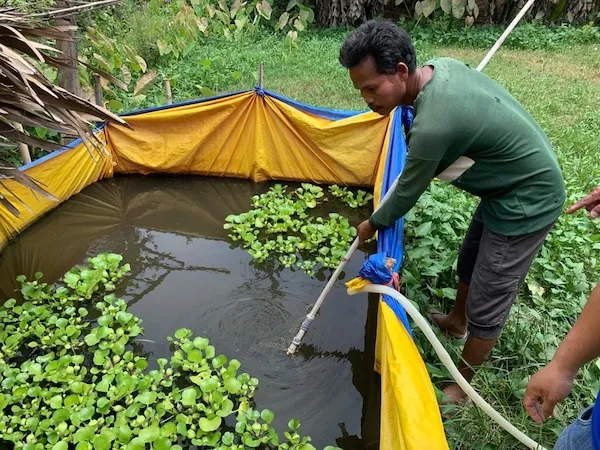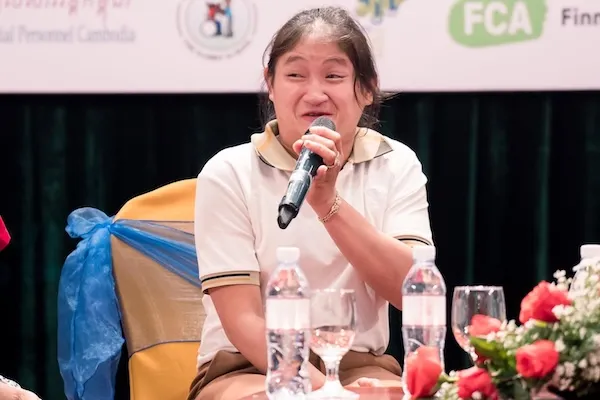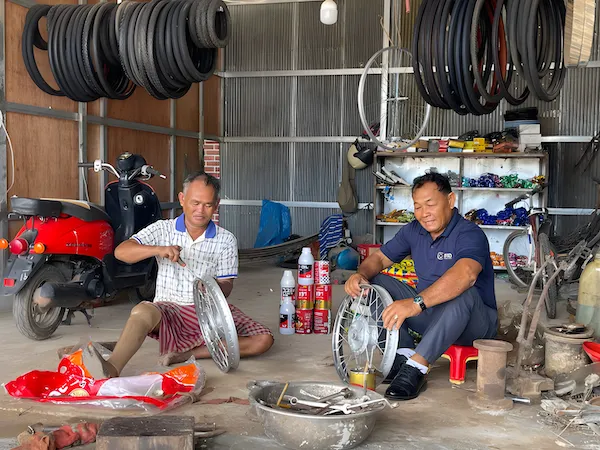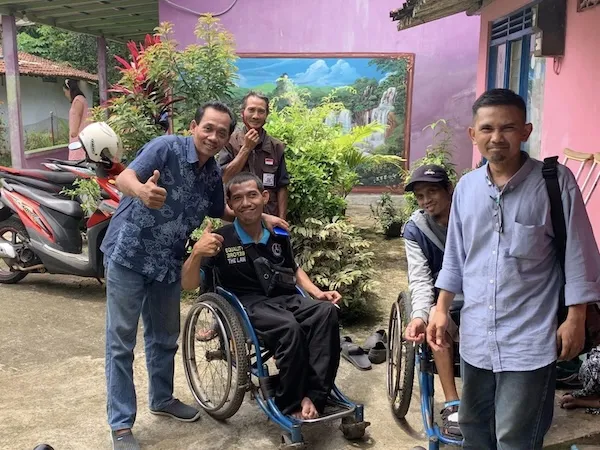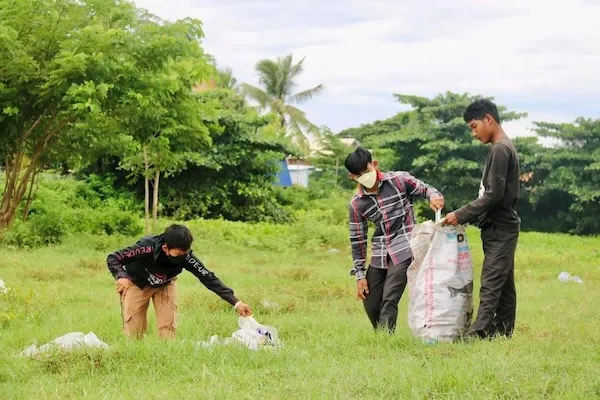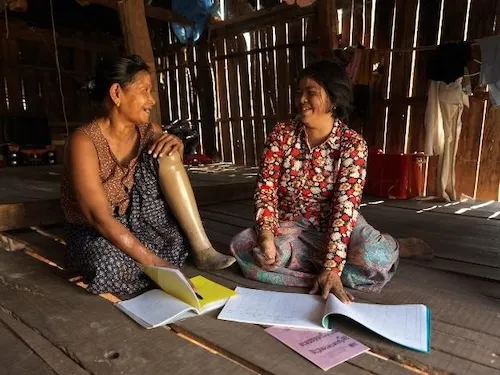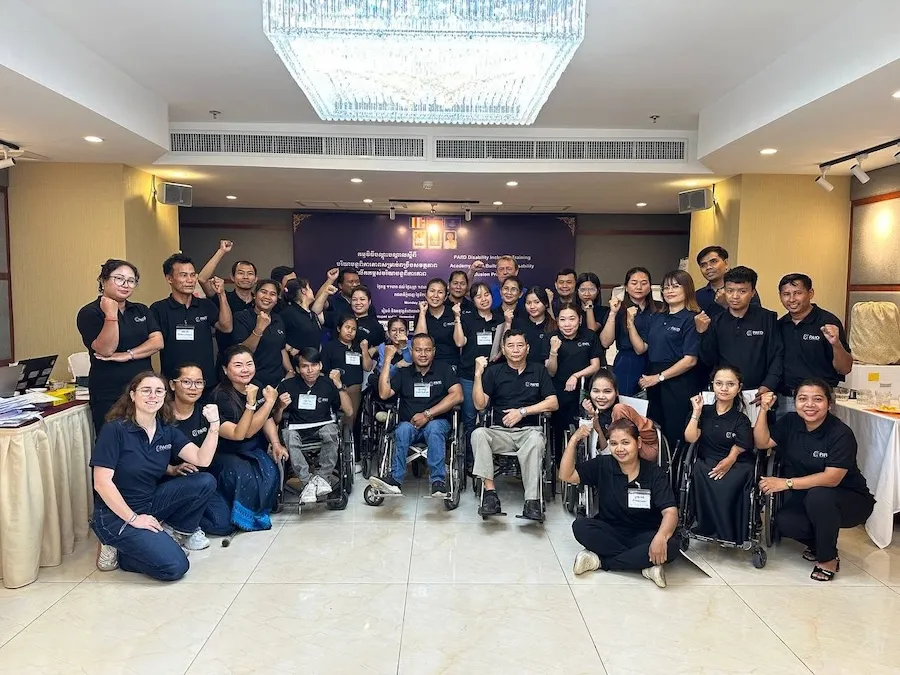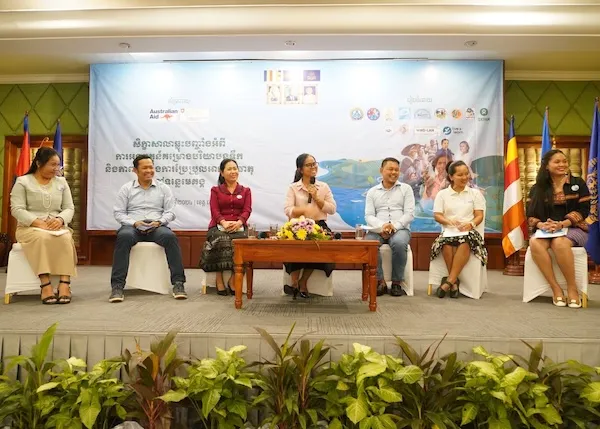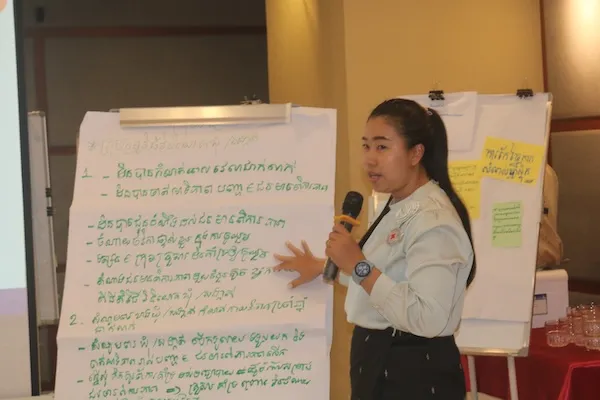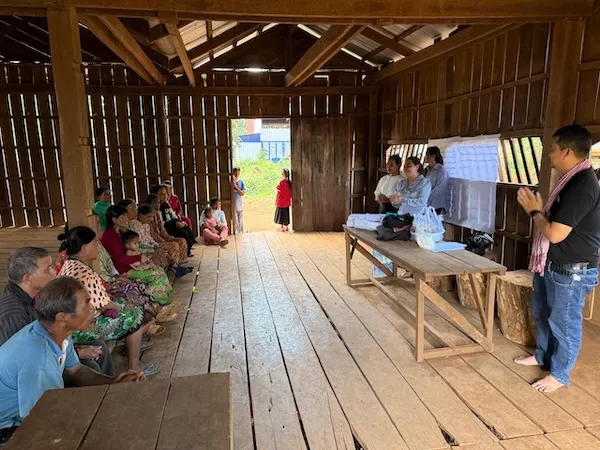Our Programmes
The unique voice of women with disabilities needs to be heard, but for many reasons it is not. Women with disabilities (WWD) experience multiple disadvantages due to the interplay between gender, disability and poverty. They experience higher rates of poverty, ill health, unemployment and violence than their non-disabled peers.
From its early days in development in our social innovation lab in Cambodia, Agri-lab has expanded and is now also operational in Indonesia and in Africa. Agriculture is the backbone of rural life and economy in Cambodia but sadly can be an inaccessible environment on many levels.
Persons with disability and the elderly face some of the greatest challenges and exclusion thus marginalising them from using their productive and creative capacity for self-determination and inclusion. Agri-lab aims to aid the mobility and functional impairment challenges by producing assistive farming devices for accessible agricultural practice thus improving livelihoods in rural economies.
Persons with disabilities often lack the communication and advocacy skills necessary to introduce their issues into the government system. As in many countries, they often have no or little access to information and public services especially in the rural areas and also lack the means to voice their concerns.
Many persons with disabilities, especially women, face difficulties participating in the labour market. Persons with disabilities have lower rates of employment compared to those without worldwide. Women with disabilities, rural residents and those with more severe impairments are even less likely to be employed. Job opportunities are limited due to discrimination, stigma, negative attitudes, lower educational status and lack of accessible transportation, reasonable accommodations and workplaces.
The new 3-year project builds on the success and learning of two previous projects that focused on building inclusive business and inclusive villages. This new intervention will have a different strategy because.
Plastic waste is a global concern causing devastating effects to the environment. It is a problem that won’t just go away on its own. It needs a new analysis, innovative ideas, collaborative action and joined up thinking to prevent its negative impact and to stop the planet from suffocating in plastic waste. Despite producing more than 430 million tons of plastic per year (United Nations Foundation 2023), we re-use only around 10%.
Cambodia remains one of the most heavily mine-contaminated countries in the world. Between 1979 and 2023, over 65,000 casualties were reported, with more than 9,000 survivors living with amputations. These individuals, often in remote rural areas, face intersecting challenges. PAfID is responding to this challenge with a transformative initiative aimed at improving the livelihoods of persons with disabilities affected by landmines and other explosive remnants of war (ERW).
Persons with disabilities in Cambodia continue to face barriers to participation, visibility, and leadership in their communities. To address this gap and strengthen community-based disability inclusion, PAfID launched the Disability Inclusion Promoters (DIP) programme in March 2025. The programme aims to build a network of trained persons with disabilities who can raise awareness, advocate for inclusion and accessible development initiatives, and offer guidance on referrals for services in their local areas.
In Cambodia, women with disabilities experience a unique combination of challenges; discrimination based on gender, disability, and often poverty. To respond to this gap, PAfID initiated the Women with Disabilities Leadership and Advocacy Network (WWD-LAN). Cambodia is also one of the countries most vulnerable to climate change in Southeast Asia. Women with disabilities, particularly in rural areas, are disproportionately affected and often excluded from climate-related planning and policy. WWD-LAN, through this project, places women with disabilities at the heart of climate action.
People with disabilities in Cambodia continue to face systemic barriers to accessing basic services, participating in decision-making, and benefiting from development programs. To address this gap, PAfID is implementing the SPACE-ID project. The project supports Organizations of Persons with Disabilities (OPDs) to play a stronger role in local governance, monitoring public service delivery, and ensuring that persons with disabilities, especially women and girls, are included in development planning and social protection mechanisms.
In Ratanakiri province, indigenous people experience compounded forms of exclusion due to geographic isolation, cultural beliefs, poverty, and limited access to essential information and services. Within these communities, people with disabilities particularly women and girls face even deeper marginalization. Recognizing this critical gap, PAfID has launched an initiative to promote disability inclusion in indigenous communities.
